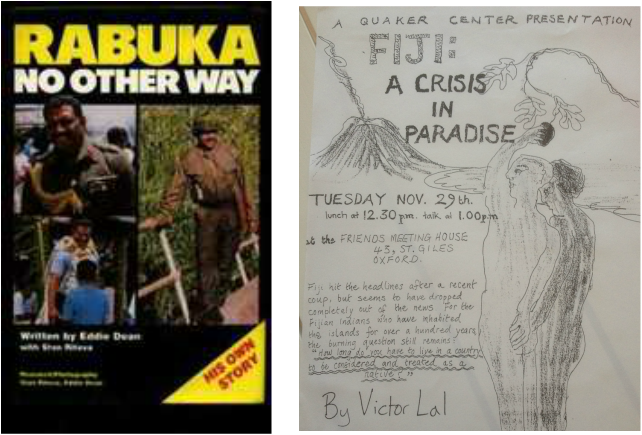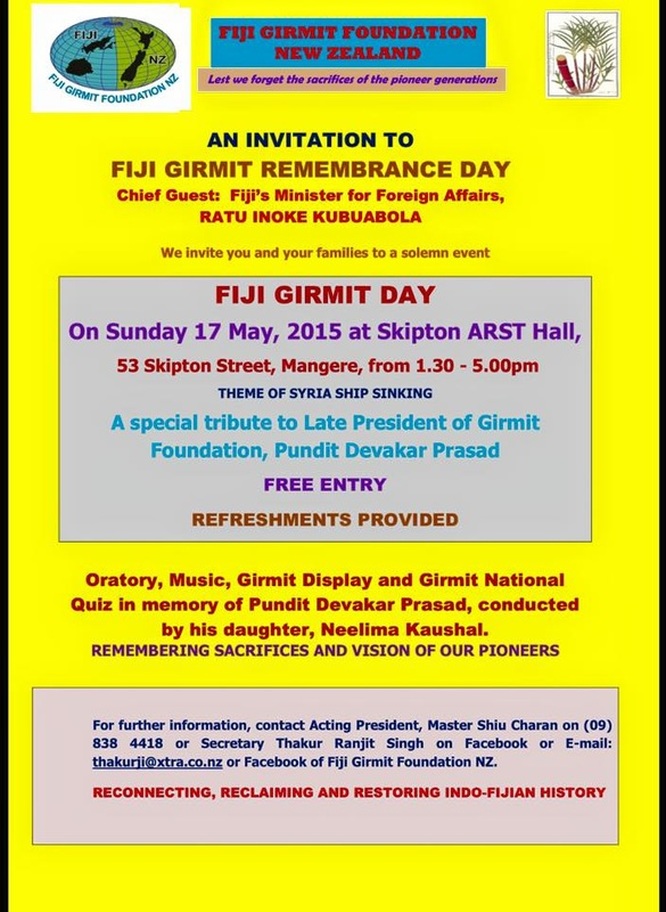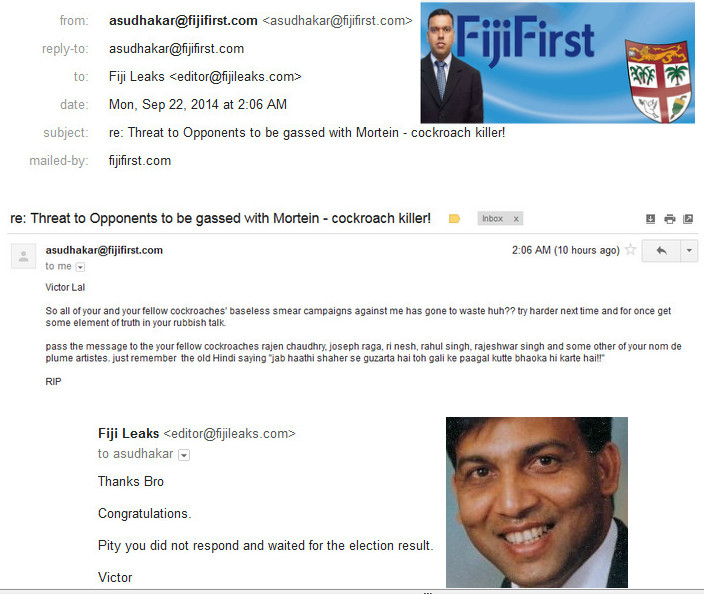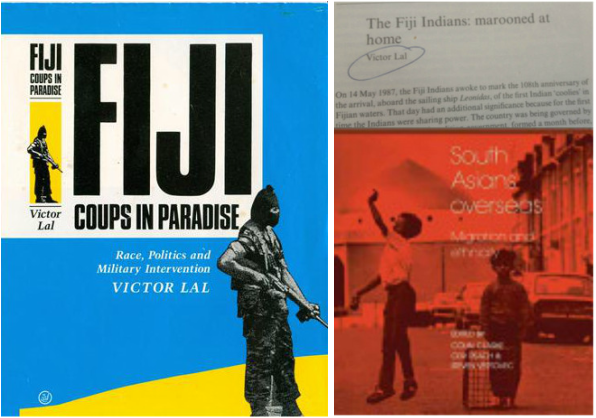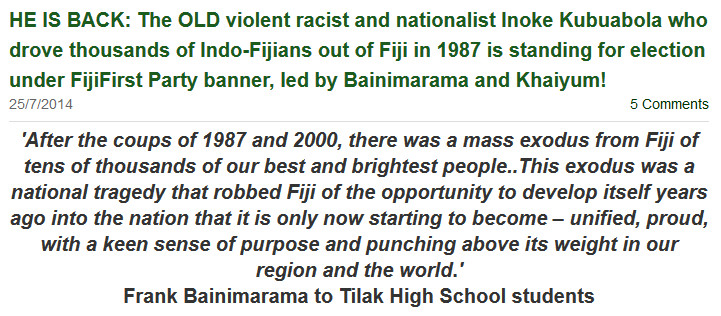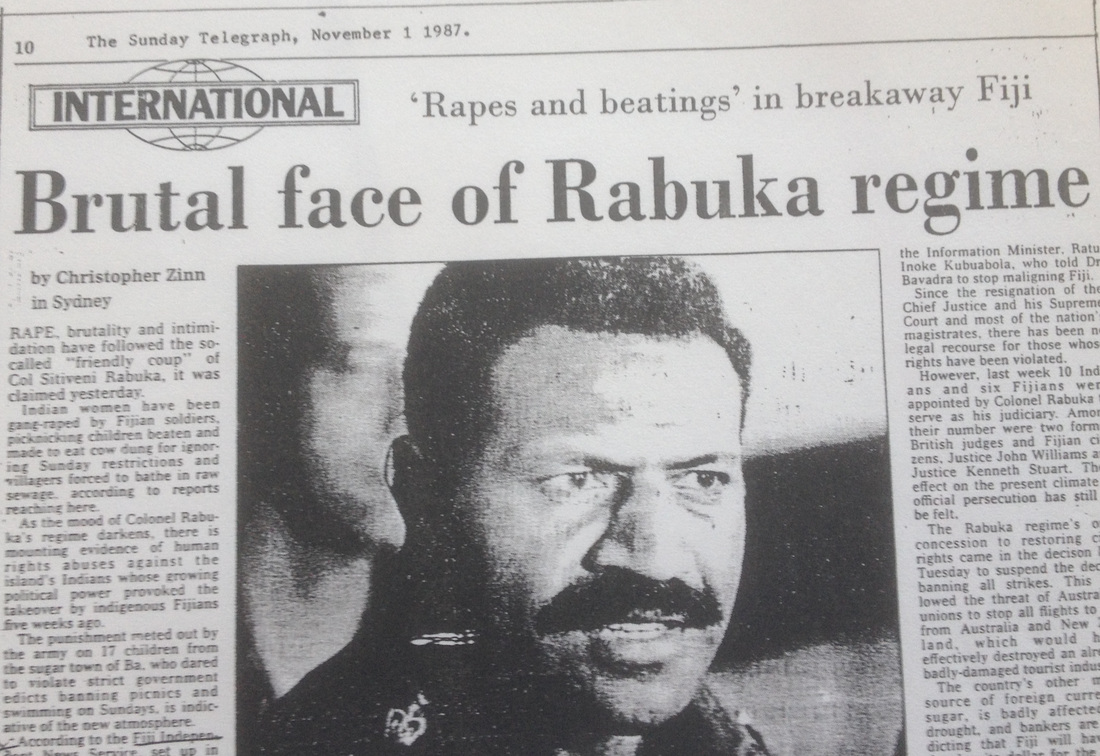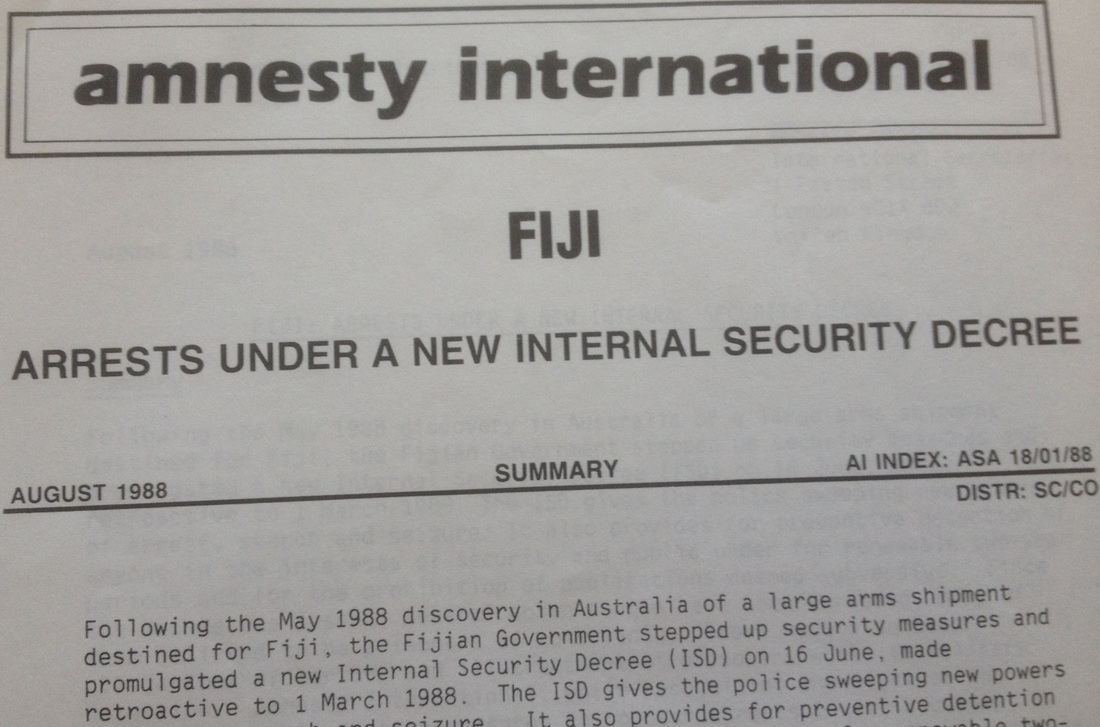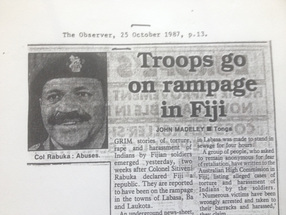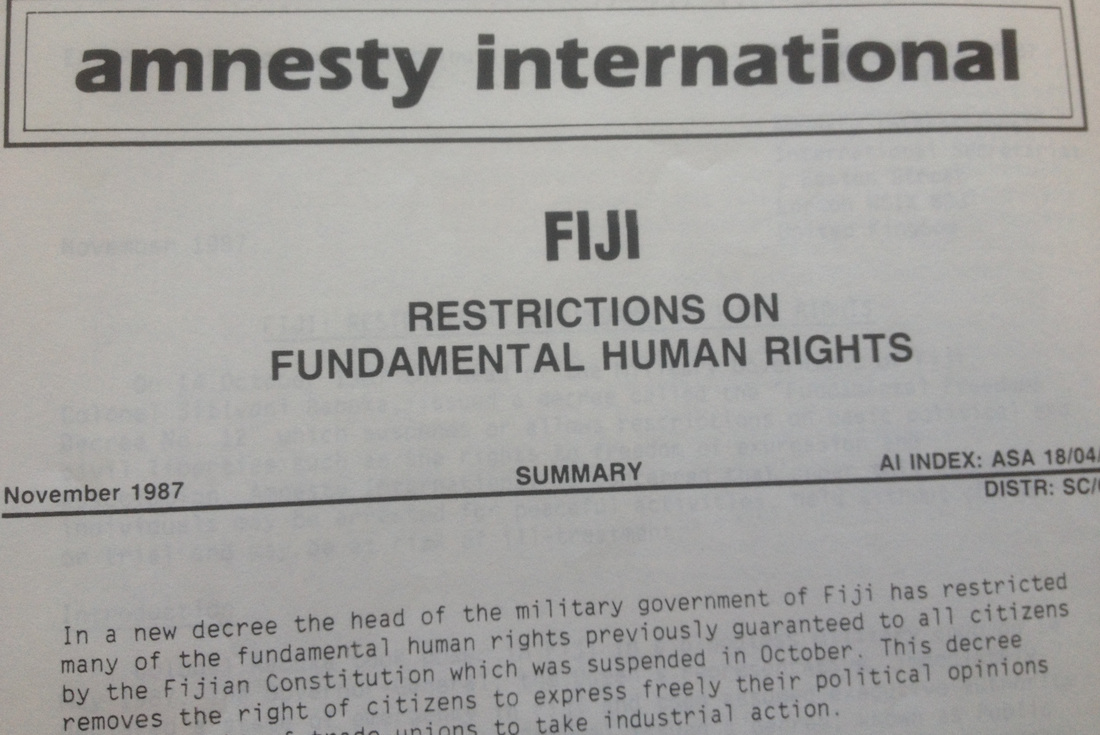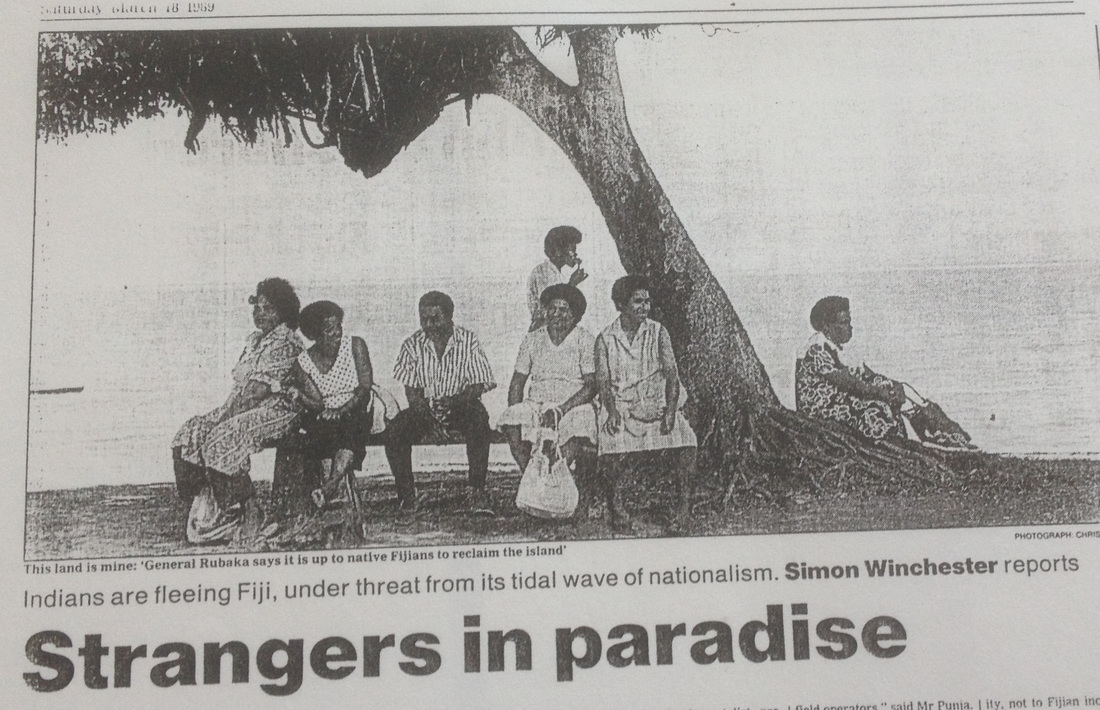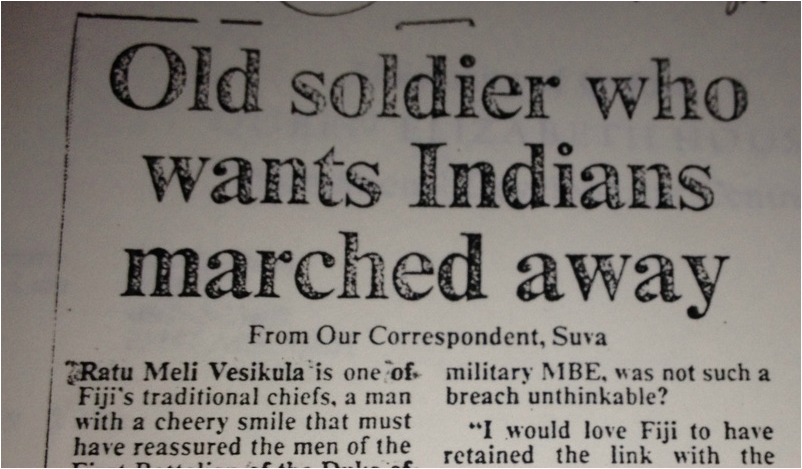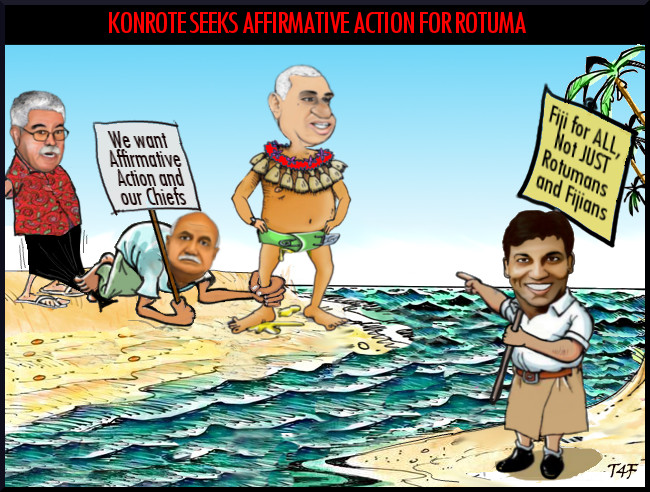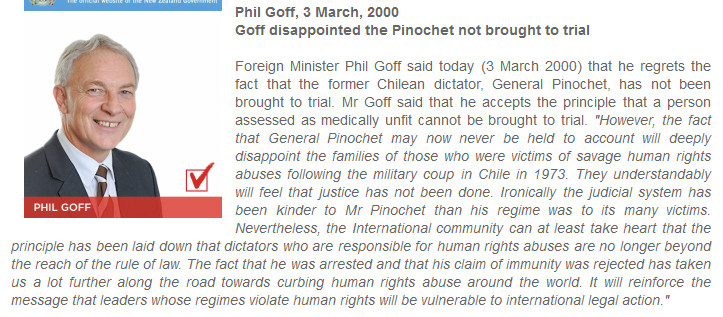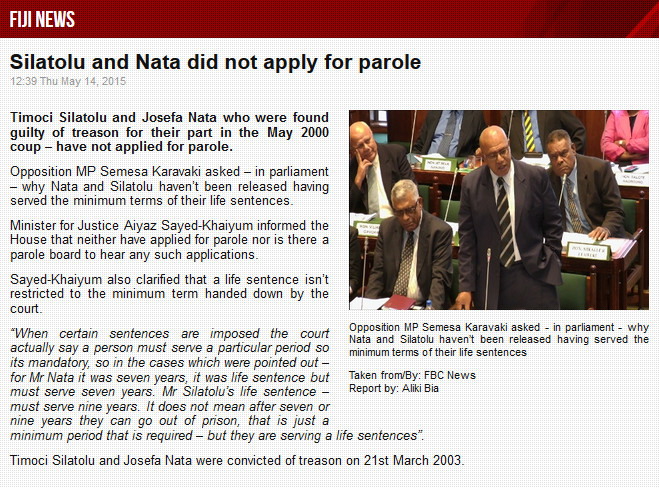SANJESH: With me now is the Fijian Prime Minister Voreqe Bainimarama. Prime Minister, what does Girmit Day mean to you?
PM: Sanjesh, it’s a day for every Fijian to remember and honour the Girmitiyas, the many thousands of indentured labourers who were brought to Fiji by the British to work in the cane fields. It’s 136 years now since that programme began so it’s a day to honour the Girmitiyas, their lives, their dreams of a better life, and the legacy they have left our nation through the contribution to Fiji of their descendants.
I think it’s a very important day to recall what it must have been like for the 60,000 Indians who were transported to Fiji between 1879 and 1916, when the indentured labour system was stopped. Can you imagine what it must have been like for simple men and women from rural India to be loaded onto ships and spend many months at sea and arrive in the Pacific in a place they had no knowledge of? The hardship and suffering they must have endured is something we can really only ever imagine.
Let’s face it, they may not have been slaves but they were paid a pitiful amount and could only ever leave Fiji once their indenture was over. Of course for many of these people, they had nothing to go back to. They were really amongs the poorest people in India, which as we all know had a very rigid class system and if you were poor, you and your descendants really had no way of improving your status.
So many people chose to stay in Fiji and they played a huge role in building the Fiji we know today. With their sweat blood and tears, they built the modern Fijian economy. Without them, we would never have had the sugarcane industry. Because indigenous Fijians really weren’t interested in doing the backbreaking work that was necessary to cut the cane for the Australian owners so that it could be shipped offshore. So in many ways without these people, Fiji would never have developed in the way that it has and they deserve to be remembered and to be thanked.
SANJESH: What is their lasting legacy do you think, Prime Minister?
PM: Sanjesh, the descendants of the Girmitiyas are a hugely important part of our nation today. In every aspect of Fijian life, the contribution of the Indo-Fijian descendants of these people makes us what we are today. I think it’s a wonderful thing that the work ethic that they showed 100 or more years ago continues. In fact Fiji wouldn’t be where it is today without our Indo-Fijian brothers and sisters.
It’s what makes us different as a Pacific nation, the fact that all our ethnic groups have come together to help build one nation. So I think that May the 14th is also a day to remember just how important our Indo-Fijian community is to the lives of every Fijian. And of course the wonderful thing is that we are now all Fijian. No longer Indians or Indo-Fijians, the descendants of the Girmitiya are Fijians and we are now one and the same.
SANJESH: Prime Minister, it’s also the anniversary today of the 1987 Coup. Can you give us your reflections on that?
PM: Yes on this day 28 years ago at 10 o’clock in the morning, a group of gunmen led by Sitiveni Rabuka, entered the Parliament where I’ve been sitting today and took over the country. Unlike Girmit Day, which is a day of celebration, this anniversary of the 1987 Coup is a day of shame. Because it triggered three decades of instability that we are only now just starting to put behind us with our new democracy.
When you think about it, it’s really ironic that these two anniversaries are the same because May 14 1987 was the trigger for a great deal of misery in the lives of so many of our Indo-Fijian brothers and sisters. The racial hatred that was shown towards them at that time persuaded many of them to give up on Fiji and leave altogether.
Many of those listening now to your programme are in this category and I want to say to them how sorry I am for what happened, not only in the two coups of 1987 but also the dreadful events of 2000.
These coups and all their hatred really set Fiji back by three decades. If people like you who are listening had stayed and been able to see a future for yourselves and your families, imagine where Fiji would be now. Instead we have wasted so much time arguing amongst ourselves about who deserves more than anyone else.
I saw all that suffering and I was determined to put an end to it. And so we did what we did in 2006, took back the country for everyone and started the process of giving everyone equal status in our national life.
We can’t turn back the clock. Unfortunately far too many lives were damaged or destroyed. But my message to your listeners is that we have now righted this historical wrong.
We have ended the days of bitterness and division. We have produced justice for every Fijian, whoever they are and wherever they come from. I want to say to your listeners: if you want to come back, please consider doing so. The Fijian economy is growing at around four per cent or more a year and there are tremendous opportunities opening up for everyone. So if you came from Fiji but left disillusioned, think about coming back and helping us to pick up where we left off in ’87.
SANJESH: Well that’s certainly something to celebrate, Prime Minister.
PM: Certainly. We’re celebrating the contribution of the Girmitiyas and their descendants and we can also celebrate the fact that we have put the past behind us and can all look forward to much better days ahead for everyone.
Sanjesh, I tell schoolchildren all over the country – there has never been a better time to be Fijian. And I really believe that. We are already a nation that is respected in the world and I want us to be respected even more by creating more opportunity for everyone. Giving everyone justice. Giving everyone opportunity. Taking our great country and making it even greater. So to everyone listening, remember the Girmitiyas but also remember the wonderful future that lies ahead that they laid the foundations for in so many ways. Together we are building a better a fairer nation and that is certainly something to celebrate.
SANJESH: Thank you, Prime Minister.
Fijileaks to Bainimarama: What action have you taken against the Indo-Fijian 'Kubuabola' - you know who - 'Fiji ke mashoor gunda' Ashneel Sudhakar who threatened to mortein Victor Lal and other coup critics?
24 August 2000: Kubuabola attacks Victor Lal after joining post George Speight coup as Minister for Information in the interim Qarase led government:
“Victor Lal’s articles [in Fiji's Daily Post] all have a simple, indeed simplistic stance, restore Chaudhry and impose democracy as defined by Lal and his friends. What he is advocating is an Indian supremacist doctrine, a new version of Hitlerian herrenvolk for Fiji. The racism lies in his desires, not those of us Fijians. His obsession to control Fiji, blinds him to his own ambitions.”
Kubuabola was responding to the London based Movement for Democracy in Fiji which had intensified its fight for deposed Chaudhry’s political rights. The then Commodore Frank Bainimarama had claimed in his February 2001 affidavit before the Fiji Court of Appeal that he had abrogated the 1997 Constitution because he was satisfied that people engaged in the events of May 19 [2000 Speight coup] were of the perception that the document had watered down the interests of indigenous Fijians: “Whether or not those perceptions accorded with reality was not my principal consideration. The perceptions were genuinely held by largely unsophisticated Fijians not equipped to adequately comprehend the niceties and technicalities of the Constitution.”
Foul language and derogatory comments made by SODELPA parliamentarian in constituency meeting
By Vijay Narayan, Semi Turaga and Rusiate Baleilevuka
Saturday16/05/2015
SODELPA parliamentarian Ratu Naiqama Lalabalavu made derogatory comments and used foul language in the itaukei language when he was asked about the decisions of the Speaker of Parliament by a Makoi resident.
Fijivillage was at SODELPA’s public constituency meeting at Penueli Methodist Church Hall in Makoi last night when this was done.
We have bleeped the following audio from the meeting last night due to foul language being used.
00:00/00:00 Police had earlier confirmed that this was a public meeting and this is the reason why SODELPA needed a permit to have the constituency meetings.
We have sent questions to the Speaker of Parliament Doctor Jiko Luveni.
Meanwhile, Prime Minister Voreqe Bainimarama says he is saddened to hear that Ratu Naiqama Lalabalavu has chosen to denigrate the Office of the Speaker of our Parliament by swearing in the vernacular at the Honourable Speaker, Jiko Luveni.
In a statement, Bainimarama says the Speaker of Parliament holds a very esteemed position in our Constitutional System of Government in which Parliament is the supreme law making body.
The Prime Minister says to have Honourable Lalabalavu who has not acted very honourably, publicly use abusive terms is scandalous to say the least and is an attack on the Fijian Parliamentary system of governance.
Bainimarama says the Speaker represents the Parliament and an attack on the Speaker is an attack on Parliamentary democracy.
The Prime Minister further says that the unfortunate thing for the Opposition has been that it has not come to grips with the fact that they did not win the elections and they are not in government and thus, have resorted to cheap and abusive politics.
Bainimarama says as a result of this frustration of theirs, they have simply embarked now both in and out of Parliament on an agenda of vilifying individuals and spreading misinformation on the proceedings in Parliament.
He says this unfortunate attack on the Speaker is the height of all abuse.
The Prime Minister says parliament must not allow this type of unbecoming behavior to ever take place again. Source: Fijivillage News
Fijileaks: Fiji media have turned into Spy State for the Government instead of acting as Fourth Estate; to date they have not questioned nor published Fiji ke mushoor gunda (Fiji's Famous Goon's) death threats against coup opponents.
PM: Yes on this day 28 years ago at 10 o’clock in the morning, a group of gunmen led by Sitiveni Rabuka, entered the Parliament where I’ve been sitting today and took over the country. Unlike Girmit Day, which is a day of celebration, this anniversary of the 1987 Coup is a day of shame. Because it triggered three decades of instability that we are only now just starting to put behind us with our new democracy.
Excerpt from Victor Lal: Fiji: Coups in Paradise - Race, Politics and Military Intervention:
"Ratu Inoke Kubuabola told Islands Business magazine of May 1988 that for more than six hours on April 19 he and Rabuka, later joined by Jone Veisamasama, 'talked about different options'. It was on 19 April that the groundwork for the coup was laid and according to Kubuabola, 11 May was the day his co-conspirators decided to proceed with its execution. He also claims that when it was learnt that Parliament would not sit on Friday they had agreed to bring forward the coup to Thursday. Another crucial intermediary between the Taukei Movement and the military, the Rev Tomasi Raikivi, provided his house in Suva as a centre for overall planning. Thus it was there that Rabuka met the other conspirators on Easter Monday, nine days after the defeat of the Alliance Party. We will let Rabuka explain the rest, as he did to Eddie Dean and Stan Ritova in his infamous autobiography No Other Way. He went to Rev Raikivi's for, ' … What he understood was an ordinary 'grog' party. It was early evening, and he just walked in, as he normally would, throwing his 'sevusevu' of yagona towards the bowl where the 'grog' was being mixed. 'I saw all these people sitting down, and realised it was some kind of a meeting. Some of the people greeted me, although I could not see everyone clearly because it was fairly dark in the lounge-room. Nobody asked me to leave.' When his eyes adjusted to the darkness, he discovered the gathering was 'quite a formidable group'. He says it included Ratu Finau Mara, Ratu George Kadavulevu, Ratu Inoke Kubuabola, Ratu Keni Viuyasawa, the brother of Brigadier Epeli Nailatikau, Filipe Bole, Ratu Jo Ritova of Labasa, Ratu Jale Ratum, 'Big Dan' Veitata, and the host Raikivi. Another leading light at this meeting was Apisai Tora.''
